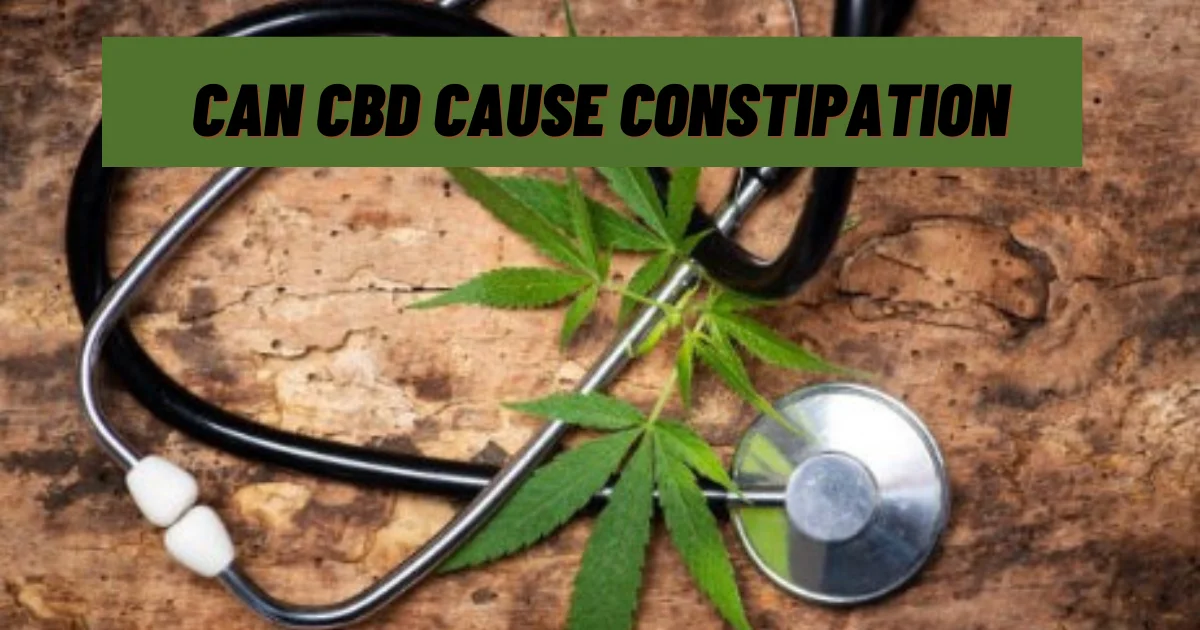In recent years, CBD (cannabidiol) has gained significant popularity for its potential health benefits. CBD has captured the attention of people seeking natural remedies, from relieving pain to reducing anxiety. However, as with any supplement or medication, it’s essential to consider potential side effects. One question that often arises is whether CBD cause constipation. Today, we will explore this topic in detail and provide the information you need to decide about CBD use.
Get to know about some effects of CBD cause constipation.

Before we delve into the potential connection between CBD and constipation, let’s first understand what CBD is and how it interacts with the body. CBD is a cannabinoid compound derived from the hemp plant. Unlike THC (tetrahydrocannabinol), CBD is non-psychoactive, meaning it does not produce a “high” effect.
CBD interacts with the body’s endocannabinoid system, crucial in maintaining balance and regulating various bodily functions. This complex system influences everything from mood and sleep to pain perception and digestion.
The Connection Between CBD and Digestion

CBD has shown promise in alleviating digestive issues like nausea, vomiting, and diarrhea. It can interact with receptors in the gastrointestinal tract and potentially help regulate digestive processes. However, some individuals have reported experiencing constipation after consuming CBD products.
Causes of Constipation!
Constipation is a common digestive problem characterized by difficulty or infrequent bowel movements. It can cause discomfort, bloating, and a sense of incomplete evacuation. There are various causes of constipation, including dehydration, a lack of fiber in the diet, certain medications, and even stress.
Potential Factors Contributing to Constipation with CBD Use
While research on the specific effects of CBD on constipation is limited, it’s essential to consider several potential factors that could contribute to digestive issues when using CBD.
Carrier Oils
CBD is often mixed with carrier oils to enhance absorption. Some commonly used carrier oils, such as MCT or coconut oil, can have a laxative effect when consumed in large quantities. Suppose you are using CBD oil and experiencing constipation. In that case, whether the carrier oil contributes to the issue is worth considering.
Dosage
Like any supplement, the dosage of CBD can affect its impact on the body. While low to moderate doses of CBD are generally well-tolerated, higher doses may lead to gastrointestinal disturbances, including constipation. Finding the proper dosage that works for your body is essential, and consult a healthcare professional if you have concerns.
Dehydration
CBD has been reported to have a mild diuretic effect, which can increase urine production and potentially contribute to dehydration. Dehydration is a common cause of constipation, so it is essential to ensure you are adequately hydrated when using CBD.
Stress and Anxiety
CBD is often used to alleviate stress and anxiety, which can impact digestion. However, suppose stress or anxiety is a significant factor in constipation. In that case, CBD may not directly cause the issue but indirectly contribute by not addressing the underlying cause.
Tips for Using CBD without Experiencing Constipation
Suppose you are using CBD or considering incorporating it into your routine but are concerned about constipation. In that case, there are several tips you can follow to minimize the likelihood of experiencing digestive issues.
Hydration
Ensure you drink enough water throughout the day to stay adequately hydrated. It can help combat any potential dehydration caused by CBD and promote healthy bowel movements.
Choose Quality Products
Opt for reputable CBD brands that provide third-party lab testing to ensure purity and quality. Additionally, consider products that use alternate carrier oils without apparent laxative effects.
Start with Low Doses
Begin with a lower dose of CBD and gradually increase if necessary. It allows your body to adjust and reduces the likelihood of experiencing digestive issues.
Monitor Your Body
Pay attention to how your body responds to CBD. If you notice any digestive disturbances, including constipation, adjust your dosage or consider switching to a different product.
Seek Professional Advice
If you have any concerns or pre-existing digestive conditions, it is advisable to consult with a healthcare professional before incorporating CBD into your routine.
While CBD has shown promise for various health conditions, its potential effects on digestion, including constipation, still need to be fully understood. However, by considering factors like carrier oils, dosage, hydration, and stress, you can minimize the likelihood of experiencing constipation while using CBD. It’s always essential to listen to your body and seek professional advice. As with any supplement, individual experiences may vary, and what works for one person may not work for another. Remember to prioritize your overall health and well-being when deciding CBD use.
Please note that the information provided in this blog is for educational purposes only and should not serve as a substitute for professional medical advice. Always consult with a healthcare professional before starting any new supplement or medication.






